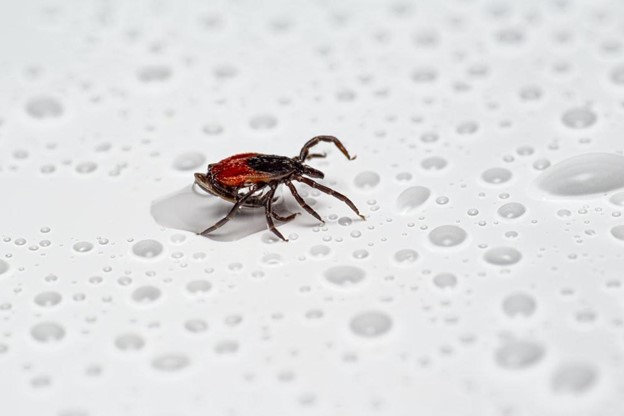As we make our way into spring and summer, extra considerations for pet health are a must. It’s time for pet owners to think about things like increased activity levels, hydration, consistent parasite prevention, and heat safety. As your local Smyrna veterinarian, we’re here to help you keep your furry friend happy and healthy as the weather warms up.
Let’s dig into a few health tips to help you get started, and prevent illness in your furry companions:
1. Keep Your Pets Hydrated
Just like humans, pets need plenty of fluids to stay hydrated, especially during warmer months. Make sure they always have access to clean, freshwater. If you’re going to be out and about with your pets, bring along a water bottle and bowl for your pup.
If your pets spend a lot of time outside, ensure they have fresh, cool water available at all times.
2. Increase Activity Levels Gradually
If your pet isn’t used to spending long periods of time outdoors, start by gradually increasing their activity levels. Too much too soon can lead to heat exhaustion or even heat stroke.
What are signs of heat exhaustion?
- Heavy panting
- Drooling
- Lethargy
- Vomiting
The above are all signs that your pet may be overheating. If you notice any of these symptoms, bring them to a cool area immediately and call your veterinarian.
3. Prevent Parasites
Pests such as fleas, ticks, and mosquitoes are more than just a nuisance, some of them even carry diseases that can be harmful or even deadly to your pet. Your family is also at risk, as some of these diseases that can be transmitted to your pets are considered “Zoonotic”. This means that they can be passed from animals to humans.
The American Veterinary Medical Association (AVMA) recommends that dogs and cats have year-round parasite prevention and annual heartworm and parasite testing.
Keeping pets parasite-free is one way to help them live healthier lives. And, since many of the parasite prevention medications taste like a treat to your pet, staying consistent is easy!

4. Never Leave Your Pets in a Parked Car
On a warm day, the inside of a parked car can reach temperatures over 100 degrees, within minutes. While some people think that cracking the window will help, it really doesn’t make a difference.
If you have to leave your pets in the car for any length of time, even on a mild day, consider leaving them at home. They will be happier, healthier, and much more comfortable.
5. Avoid Hot Pavement
The pavement can get incredibly hot during the summer months, making it painful for them to walk on. Before walking your dog, put your hand on the pavement for a quick temperature test. If it’s too hot for you to keep your hand on, it’s too hot for your pup to walk on.
Consider taking your dogs for a walk in the early morning or early evening, when temperatures are cooler. This will make your time spent together more enjoyable for both of you.
When temperatures outside are high, it’s also important to keep an eye on the “heat index”. The heat index is a combination of air temperature and humidity and gives a good indication of how hot it actually feels.
Additionally, keep in mind if your breed of dog is prone to heat sensitivity. For example, some dogs, such as bulldogs or boxers are more prone to being “brachycephalic”, which means that they have a shorter, more flattened face. This can make breathing more difficult, particularly in humid and hot weather.

6. Make Sure Pet ID is Up to Date
If your dog or cat should happen to get lost, the best way to ensure a safe return is to make sure their ID is up to date. At a minimum, your pet’s ID should include their name and your current contact information.
You may also want to consider getting a microchip for them to increase the chances of being reunited if they are ever lost. Particularly if you are visiting friends or family in a different city or location, pets may be uncertain of the new environment and wander off unnoticed. Getting a microchip is a simple process with your local veterinarian, and only takes a couple of minutes. In fact, getting a microchip can easily be done at your pet’s next veterinary appointment.
With microchip technology, if your pet wanders off, a local vet can scan for their microchip and quickly find your contact information to return them home safely.
7. Keep Vaccinations Current
Vaccinations are one of the simplest and most effective ways to help keep your pet healthy. They help protect against diseases, some of which can be deadly.
Be sure to keep their vaccinations up to date, and talk to your veterinarian about which vaccines are right for your pet based on their lifestyle. Some vaccinations may also be required based on your local city ordinances.
8. Don’t Skip the Vet Visit
Just as people should visit the doctor regularly, the same is true for our pets. By seeking advice for your pet’s health based on their lifestyle and health needs, you can avoid many health problems before they start.
Be sure to take your pets to the veterinarian at least once a year for a check-up visit and routine bloodwork, more often if recommended by your veterinarian. This is especially important as they age, as many health problems can be detected early on and managed more effectively.
9. Be Prepared for a Medical Emergency
No one likes to think about their pet being injured or becoming ill, but it’s important to be prepared for emergencies. Keep a pet first-aid kit on hand, and know how to administer basic first-aid care for your pet. It’s also a good idea to have the number of your local emergency veterinary hospital readily available. At VETERINARYCARE At Belmont, we offer extended evening hours (Open until 9 pm) for the convenience of our local animal owners.
As you can see, there are a few things to keep in mind as we move into the warmer months. By taking some simple precautions and being aware of potential hazards, you can help your companion enjoy a happy and healthy summer. If you have any questions or concerns about their health, please don’t hesitate to contact us. We are always here to help!
Frequently Asked Questions
Below are some of the frequently asked questions we receive:
What are common parasites that can infect my animal?
It is important to be aware of the various parasites that can infect our furry friends. Some of the most common parasites include fleas, ticks, and heartworms. Fleas can cause itching and skin irritation, while ticks can transmit serious diseases such as Lyme disease. Heartworm disease is a potentially fatal condition that is caused by infected mosquitoes. Other common parasites include roundworms, hookworms, and tapeworms. While most parasites can be easily treated with medication, it is important to consult with a veterinarian if you suspect that your animal has been infected. By being informed about the risks of parasite infection, we can help keep our pets healthy and happy.
What is the best way to prevent my pet from getting parasites?
We want to do everything we can to keep our furry friends healthy and happy. One important way to do this is to prevent them from getting parasites, which can cause a range of health problems. The best way to prevent parasites is to keep your pet up-to-date on their preventive medications and to have them regularly checked by a veterinarian. Additionally, you should make sure to clean up any animal waste immediately, as parasites can often be found in their feces.
How do I know if my pet has a parasite?
As pet owners, it is important to be aware of the signs and symptoms of parasites in our animal companions. Some of them are obvious, for example, a tick that may be attached to your animal. However, some parasites are tiny organisms that can live inside the body of another animal, feeding off its host. Common signs that your pet may have a parasite include itching, weight loss, diarrhea, vomiting, and poor coat condition. If you notice any of these signs in your pet, take them to the vet for a check-up, as there can be other causes of these symptoms, too. The veterinarian will be able to determine if your pet has a parasite and provide treatment accordingly.
What does the American Veterinary Medical Association Say About Vaccines?
The American Veterinary Medical Association (AVMA) is a professional organization that represents veterinarians across the United States. They have released a statement on vaccines, which you can read here. In short, the AVMA supports the use of vaccines to help protect the health of our animal companions. They state that vaccines are safe and effective, and they play an important role in preventing the spread of disease. The AVMA recommends that all animals be vaccinated according to their risk of exposure to diseases. They advise that pet owners talk to their veterinarians about which vaccines are right for their animal companions. By following the AVMA’s recommendations, we can help keep our animals healthy and safer from illness.
I have a new pet. Where do I start looking for veterinary services?
Relying on the advice of friends and family can be helpful to refer you in choosing a veterinary location. We also suggest looking at Google Reviews from local pet owners.
Choosing a veterinarian in your local area will make it more convenient to get to them for routine care or surgery visits. Having vets near you makes it easier to stay up to date with the care animals need to stay their most healthy.
Are you new to the City of Smyrna, GA or the surrounding area, and looking for veterinary care?
As you’re looking for animal hospitals near you, the search may feel daunting. We’re here to assist! VETERINARYCARE At Belmont is a clinic conveniently located in the Shops at Belmont shopping area. Our practice is accepting new clients for appointments. Our veterinarians, veterinary technician team, and client care team strive to be a local vet team that cares. We pride ourselves on relentlessly providing a high standard of vet care, and have high reviews from many pet owners, just like you!
To locate our veterinary practice, visit here.
Image credits:
- Joe Caione / Unsplash
- Tim Photoguy/ Unsplash
- Erik Karits/Unsplash

